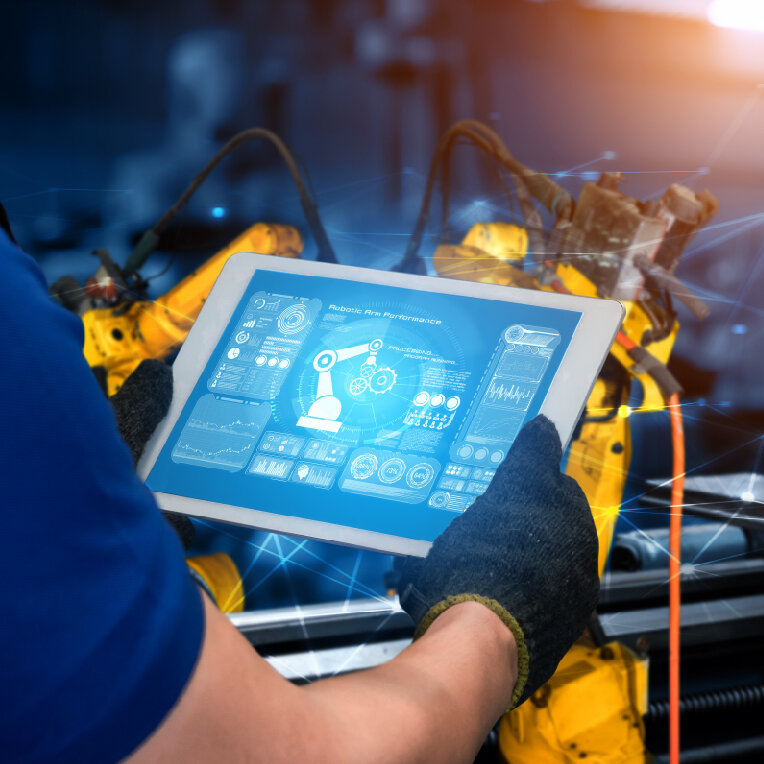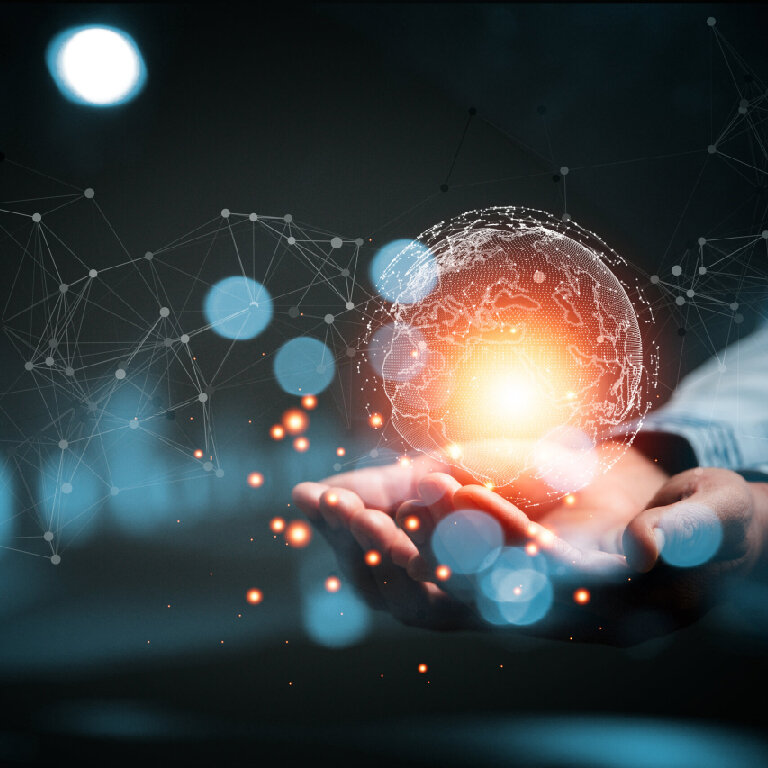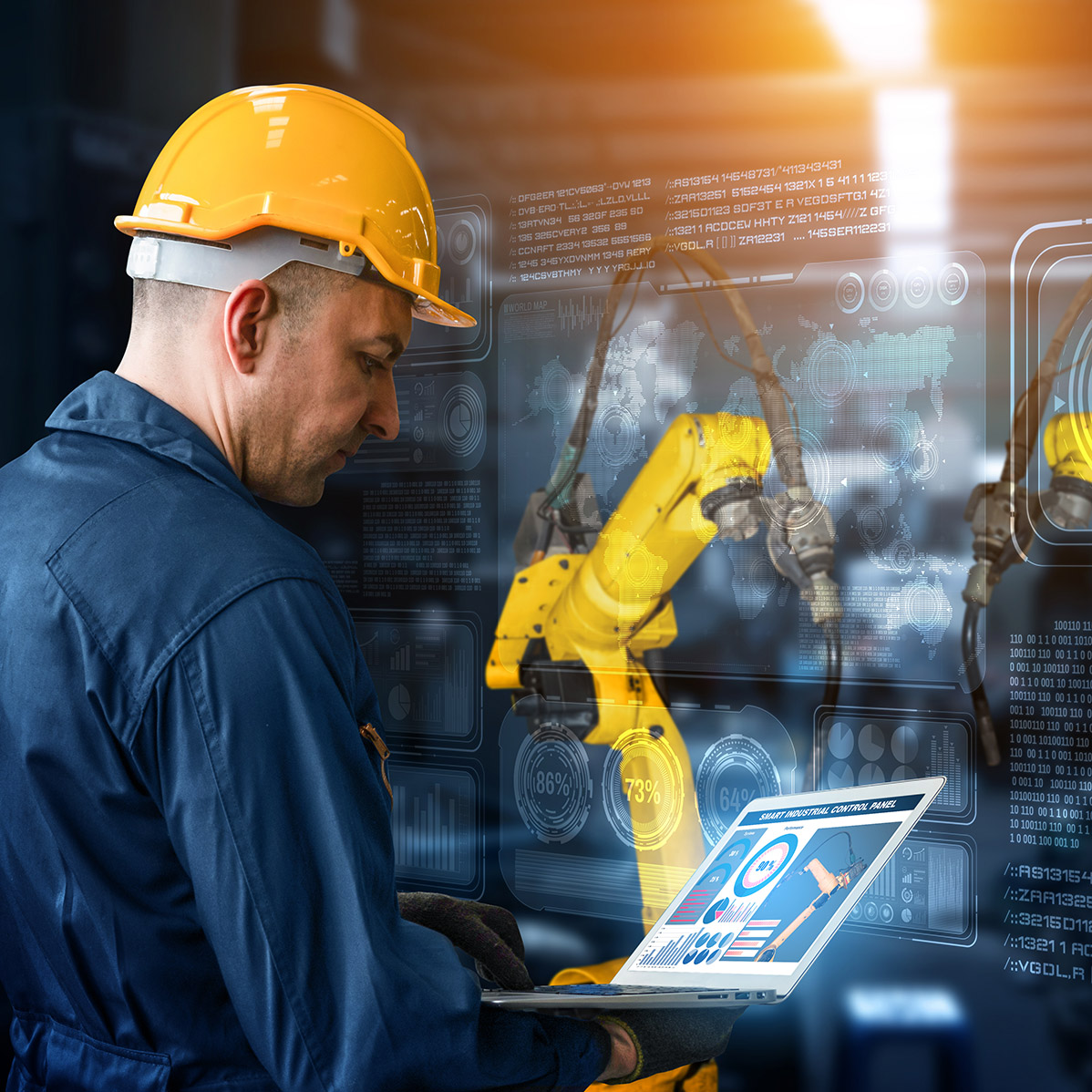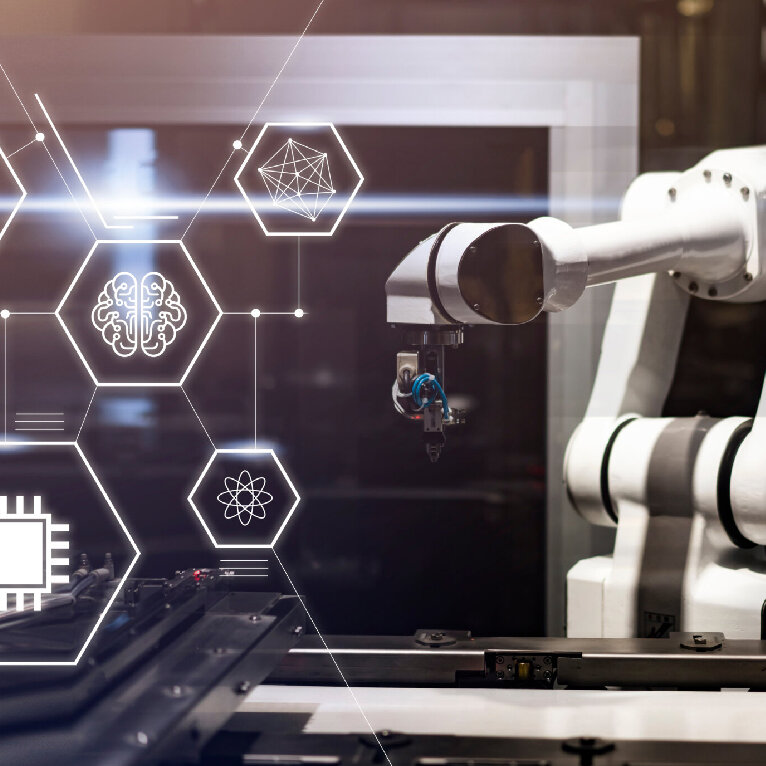Robotics and artificial intelligence
Future technologies in use
Robots have become an integral part of modern industry – from production and logistics to assembly. They perform precise and reliable recurring tasks and ensure consistent quality. However, the key to their efficient use lies not only in their design, but also in their programming and calibration. In our practical course „Robotics: Understanding theory, applying technology“, participants gain a sound understanding of the structure and functionality of various robot models. In a combination of theoretical introduction and practical application, participants learn how robots can be programmed and used for specific tasks, e.g. in camera guidance.
TRAINING
Training dates and registration
Basic knowledge of robotics
You will learn the basics and the structure of robot systems.
Practice-oriented programming
You will learn how to program and calibrate robots for specific applications.
Theoretical insights and practical implementation
Understand the theoretical basics of robotics and apply this knowledge directly in practical exercises.
Contents
Introduction to robotics
Overview of the history, development and fundamentals of robotics.
Movement of robots
Understanding of the movement mechanisms and mathematical models underlying the movement and positioning of robots. Learning methods for planning motion sequences and programming robots for specific tasks.
Fundamentals of automation technology and communication protocols
Insight into the technical and organizational aspects of automation technology. Understanding of the standards and protocols required for the communication and integration of robot systems in industrial networks.
Artificial intelligence (AI) in robotics
Introduction to artificial intelligence for the intelligent control of robots.
Learning basic AI methods to enable robots to perform complex tasks.












